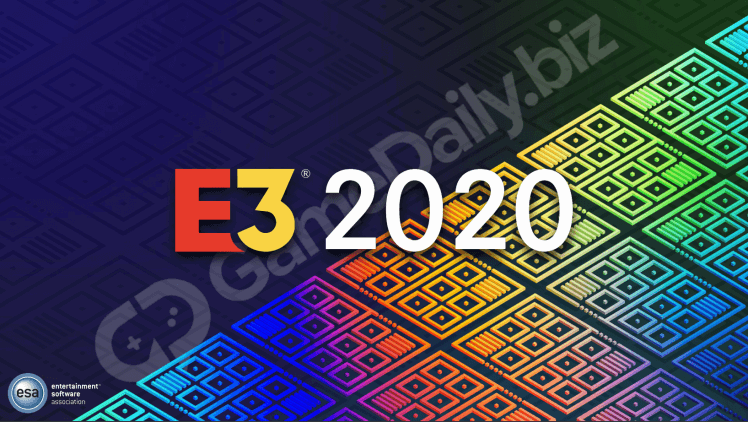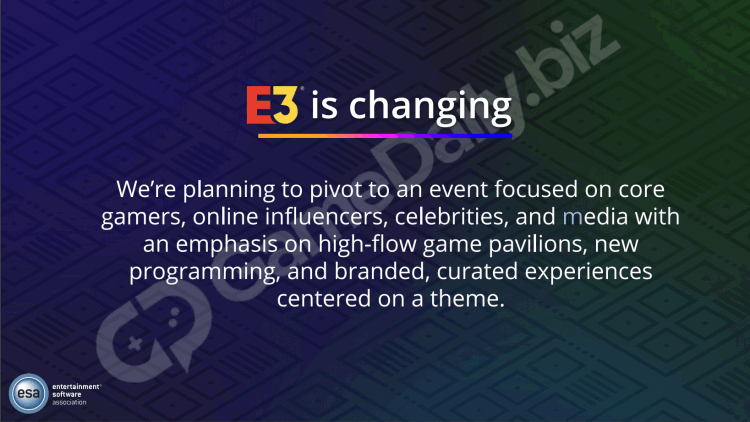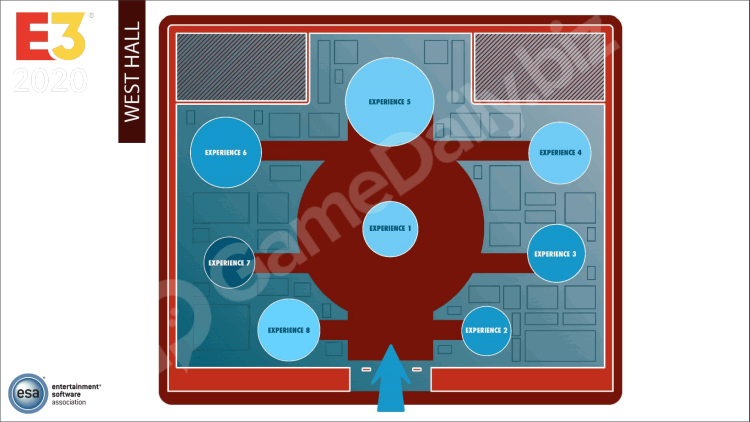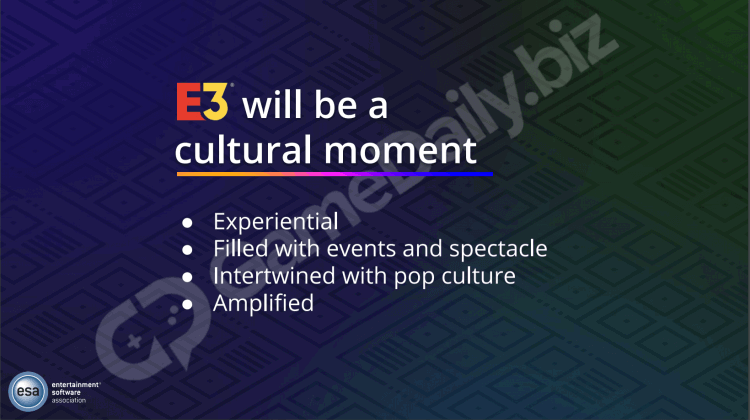For a long time now, E3’s relevance as a trade show has been slowly slipping away. But if a leaked proposal from the ESA is true, the framework of E3 as we know it may be changing into a more public-facing, celebratory festival.
According to a leaked pitch presentation obtained by GamesDaily.biz, it seems E3 intends to move away from its traditional business-to-business presentation towards a more consumer-friendly convention style similar to that of Gamescom in Europe or Tokyo Games Show.
The core of the pitch focuses on a brand new vision for E3 centered around a “fan, media, and influencer festival,” with a foundation built by media coverage and consumer feedback.
As part of the “What’s New” section of the document, the pitch outlines several ambitious additions to the event plan.
Important changes in this list include a heavy focus on celebrity and influencer engagement with fans/consumers, a newly designed show floor layout, increasing the attendee cap for non-media personnel, the separation of an entire day for industry and media members, as well as several other new ideas.
There’s even a section called “Queuetainment,” a portmanteau that basically means while you’re waiting for a presentation/gameplay demo, there will be some kind of entertainment to those waiting in line to engage with.
E3 2020’s event structure is seemingly inspired by Gamescom’s approach by limiting the first official convention day to industry personnel and influencers only, and then opening up the remaining festival days to all attendees.
ESA’s pitch also includes a sample layout of the show floor, looking to create a hub-styled layout with a central experience designed to be a “multiuse experience that brings unique, high energy experiences over the course of the show.” The idea is to have one central presentation space (E3 Coliseum) with the highest profile and themed experiences to encourage attendees to engage in “major cultural moments” and energize the crowd.
Similar to past years, E3 is also looking to have exhibitors schedule exclusive presentations in the hopes of generating hype, but with the addition of influencers/celebrities as well as media personnel.
Again, this focus on influencers in tandem with industry personnel feeds into an idea of exclusivity that those not invited can be jealous and/or be enticed by (in their words, inducing “buzz and FOMO”). They even provided a vague example of select LA Lakers players trying out a new basketball game in front of fans during one of the experiences to generate excitement for the game.
Along with creating a cultural phenomenon, the latter half of the pitch puts a heavy focus on the concept of CSR: Corporate social responsibility. Basically an entire section of the pitch is dedicated to “The Power of Social Good,” illustrating that Millennials and Gen Z players will be further influenced by corporate goodwill and influencer endorsement to purchase more games.
Dedicating effort into cultivating a social good brand for E3 means the show wants to tap into cultural and/or political hot-button topics to further influence consumer choices and hopefully increase vested interest in the industry as a whole.
Imagine a NBA Champion global super star participating in an E3 Coliseum conversation and/or global movie star being part of the E3 Digital Ticket because it included social good components.”
ESA’s presumed pitch for E3 2020 is quite the mixed bag of new announcements. On the one hand, the focus on media importance with the industry-exclusive day as well as the centralized event layout shows they want to create a convention experience that presents games first and foremost.
With that being said, some of the other inclusions discussed in this pitch, such as heavy celebrity/influencer involvement, “Queuetainment,” and the increase in general attendance, are tough to predict how they will affect the show’s identity.
A heavy focus on celebrity/influencer presence could de-legitimize the show’s original design as a trade show, further pushing away major game developers and publishers from the convention just like Xbox, Sony, and Microsoft when they started hosting their own press conferences.
Increasing the general attendance cap also poses issues, considering most consumers are less forgiving of in-progress games being demoed than industry professionals, since there’s the chance fans are less likely to understand that games in development aren’t necessarily representative of the final product. Also “Queuetainment” as a concept sounds more distracting and annoying instead of an exciting way to bide time until the demo/presentation you actually want to see.
Hopefully we’ll learn more about these changes get a better idea of what 2020’s E3 will be like in an official announcement in the future. Until then we patiently wait until June 9, 2020 when next year’s show begins.
The full details of the pitch can be found here, courtesy of GameDaily.biz.






